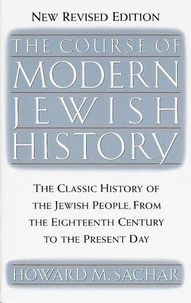By the end of World War I, in November 1918, Europe's old authoritarian empires had fallen, and new and seemingly democratic governments were rising from the debris. As successor states found their place on the map, many hoped that a more liberal Europe would emerge. But this post-war idealism all too quickly collapsed under the political and economic pressures of the 1920s and '30s. Howard M. Sachar chronicles this visionary and tempestuous era by examining the fortunes of Europe's Jewish minority, a group whose precarious status made them particularly sensitive to changes in the social order.
Writing with characteristic lucidity and verve, Sachar spotlights an array of charismatic leaders-from Hungarian Communist Bela Kun to Germany's Rosa Luxemburg, France's Socialist Prime Minister Léon Blum and Austria's Sigmund Freud-whose collective experience foretold significant democratic failures long before the Nazi rise to power. In the richness of its human tapestry and the acuity of its social insights, Dreamland masterfully expands our understanding of a watershed era in modern history.
By the end of World War I, in November 1918, Europe's old authoritarian empires had fallen, and new and seemingly democratic governments were rising from the debris. As successor states found their place on the map, many hoped that a more liberal Europe would emerge. But this post-war idealism all too quickly collapsed under the political and economic pressures of the 1920s and '30s. Howard M. Sachar chronicles this visionary and tempestuous era by examining the fortunes of Europe's Jewish minority, a group whose precarious status made them particularly sensitive to changes in the social order.
Writing with characteristic lucidity and verve, Sachar spotlights an array of charismatic leaders-from Hungarian Communist Bela Kun to Germany's Rosa Luxemburg, France's Socialist Prime Minister Léon Blum and Austria's Sigmund Freud-whose collective experience foretold significant democratic failures long before the Nazi rise to power. In the richness of its human tapestry and the acuity of its social insights, Dreamland masterfully expands our understanding of a watershed era in modern history.

 , qui est-ce ?
, qui est-ce ?